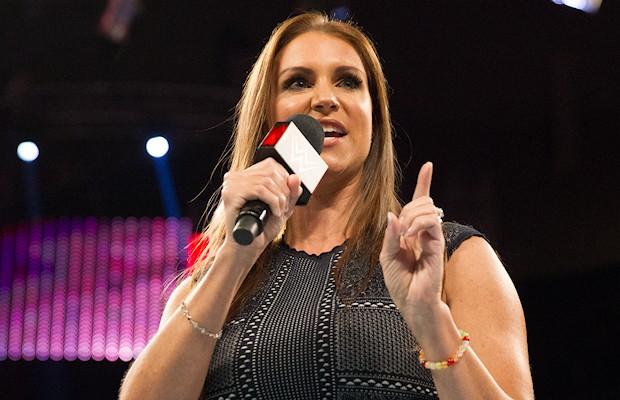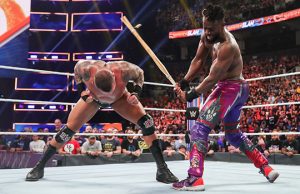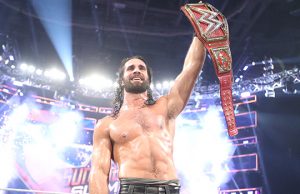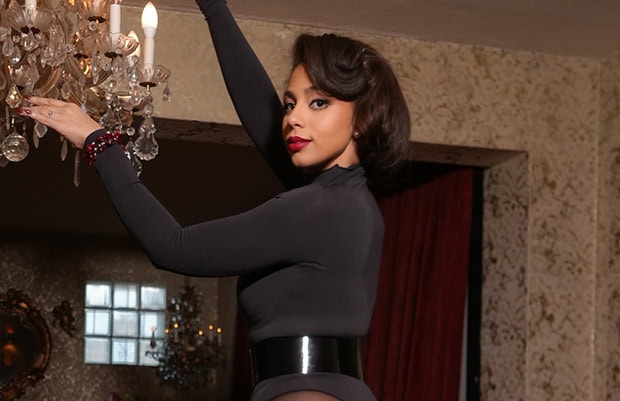Stephanie McMahon Talks Brock Lesnar – UFC and WWE, Fans and Social Media, More

Stephanie McMahon spoke with Lara O’Reilly of Business Insider last week while in France at the Cannes Lions advertising festival. The full interview is at this link and below are highlights:
O’Reilly: How much do you listen to what fans say on social media and how much does that influence what you do as a company, but also storylines?
McMahon: I think it’s one of the secret sauces to our success if you will is that our fans are a part of our show. They engage, they chant, they cheer, they boo. There’s a problem when they don’t react. So, in essence, every live event is like a focus group. So we are getting that real-time feedback from them, in the arena.
Another reason why I think social media was so successful for WWE is because of that fan engagement, because they are a part of what we do, therefore, even when they are not live in the arena, they have influence through social media. I think that it’s so important. A lot of brands just push messages out on social media, but that’s not what social is about. Social is about engaging, it’s about a conversation, it’s about listening and then responding, it’s an ongoing conversation with our fan base.
So when you consider the fact that our fans influence what happens in a match – a lot of it is improv, so they can dictate the flow if something’s not working, you can make an adjustment on the fly. They dictate what’s being said. They can often chant or you can get a feeling they are not engaged with the content, so you have to find a way to transition around that.
O’Reilly: Brock Lesnar [an NCAA wrestler, turned-WWE star, who is now rising to UFC fame] is a really interesting story right now. You’ve not necessarily ever done cross-brand promotions with the UFC before. Are you realizing there is a place for both UFC and WWE? Do they compete in any way? And also the fact that he’s flipped from one to the other and then back again.
McMahon: Brock is a unique proposition, but just to get to the broader question: UFC is not a competitor to the WWE because we are entertainment and UFC is competitive sport. It’s very different. WWE is all about protagonists and antagonists where ultimately our conflicts are settled in the ring with action that is akin to Hollywood. It’s incredible stunt-like action and the match itself tells a story, but our audience is engaged in the characters and their storyline. It has to be relatable to them so that they care to see the tragedy or triumph and we’re at an advantage because we can script it.
UFC, they can make a big star but the second that person loses, they lose credibility, and how do you continue to make that star rise? So I think we have the best of both worlds and the opportunity to tell the stories in the way we want to tell them.
In Brock Lesnar’s case it was really a special case that we are allowing him to do this fight [against Mark Hunt on July 9]. But like you said it’s not really a cross-promotional opportunity, but we are allowing him to participate in that fight.
We are not supporting the fight necessarily but, again, it’s not a competitor to us and the more that our superstars, that’s how we refer to our talent, the more they do outside of WWE, the more awareness it generates and the broader the audience can be that is then brought back into our properties. So we recognize the value of that.
O’Reilly: I wanted to ask about WWE Network and how it’s performing. What expectations did you set at the start and now where are you at?
McMahon: It is now our fastest-growing and second most-profitable business, behind television rights and licensing. For WrestleMania, we announced 1.8 million subscribers and in just two years that’s not too shabby.
Our whole content proposition, it’s like it functions almost exactly like Netflix, except you get a little bit more bang for your buck. So we like to say it’s like Netflix only better, if you’re a WWE fan, because not only do we offer the VOD content, which we currently have over 5,000, which we continue to add our library to. We create original programming. We also offer our live, monthly specials, our pay-per-view specials, for incredible value of $9.99 a month, versus $59 and up in the US.
Also, we have a linear channel, so you can turn on and watch it just like a regular, pre-programmed channel, or you can have the customized experience. It really is very unique that way and it was one of the first to market prior to HBO and a couple of the other big launches.

















0 comments